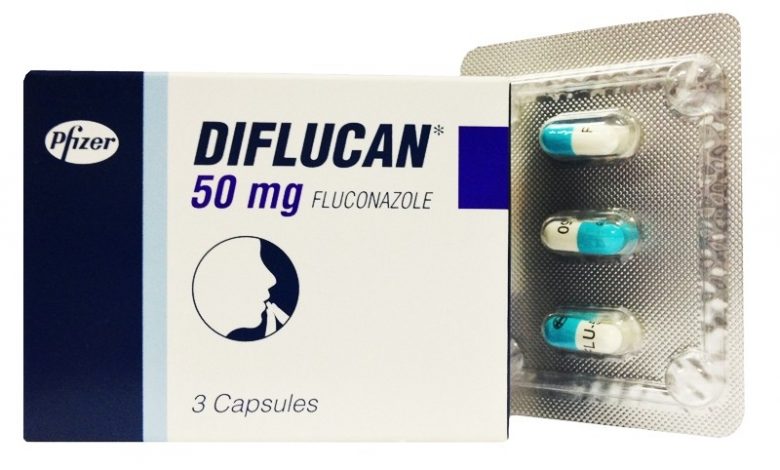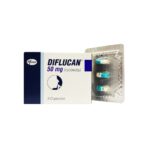How Long Does Fluconazole Stay In Your System?

Fluconazole is in a class of antifungals called triazoles. It works by slowing the growth of fungi that cause infection. It is used to treat fungal infections, including yeast infections of the vagina, mouth, throat, esophagus (tube leading from the mouth to the stomach), abdomen (area between the chest and waist), lungs, blood, and other organs.
Fluconazole is also used to treat meningitis (infection of the membranes covering the brain and spine) caused by fungus. Fluconazole is also used to prevent yeast infections in patients who are likely to become infected because they are being treated with chemotherapy or radiation therapy before a bone marrow transplant (replacement of unhealthy spongy tissue inside the bones with healthy tissue).
Fluconazole is also sometimes used to treat serious fungal infections that begin in the lungs and can spread through the body and fungal infections of the eye, skin, and nails. Fluconazole is also sometimes used to prevent fungal infections in people who are likely to become infected because they have human immunodeficiency virus (HIV) or cancer or have had a transplant operation (surgery to remove an organ and replace it with a donor or artificial organ). Talk to your doctor about the possible risks of using this medication for your condition.
How should Fluconazole be used?
Fluconazole comes as a tablet and a suspension (liquid) to take by mouth. It is usually taken once a day, with or without food. You may need to take only one dose of fluconazole, or you may need to take fluconazole for several weeks or longer. The length of your treatment depends on your condition and on how well you respond to fluconazole. Follow the directions on your prescription label carefully, and ask your doctor or pharmacist to explain any part you do not understand. Take fluconazole exactly as directed. Do not take more or less of it or take it more often than prescribed by your doctor.
Your doctor may tell you to take a double dose of fluconazole on the first day of your treatment. Follow these directions carefully.
Shake the liquid well before each use to mix the medication evenly.
You should begin to feel better during the first few days of treatment with fluconazole. If your symptoms do not improve or get worse, call your doctor.
Continue to take fluconazole until your doctor tells you that you should stop, even if you feel better. Do not stop taking fluconazole without talking to your doctor. If you stop taking fluconazole too soon, your infection may come back after a short time.
How long does Fluconazole last?
Generally, Fluconazole starts to work within one day, but it may take 3 days for your symptoms to improve and up to 7 days for your symptoms to disappear.
How long does Fluconazole stay in your system?
There are several factors that come into play when estimating how long Fluconazole will stay in your system because every patient has physiology unique to them. Here are some major factors you should consider when trying to understand how long Fluconazole will stay in your body:
• Age: Typically, the younger you are, the more efficient your body functions are. The more efficient your body functions, the faster Fluconazole will be removed from your system.
• Amount: The higher the dose of Fluconazole you have been taking, the longer Fluconazole will take to be removed from your system.
• Genetics: Genes predispose people to different metabolic functions, which is a key factor in how your body processes medications like Fluconazole. For this reason, your genetic makeup comes into play when estimating how long Fluconazole will remain in your system.
• Kidney and liver functions: The liver and kidneys eliminate everything you ingest, and Fluconazole is no exception. If your liver or kidneys are damaged, it will most likely take longer for your body to remove the Fluconazole from your system.
• Metabolism: Your metabolism determines how quickly you process foods, liquids, and drugs such as Fluconazole. If your metabolism is slow, it will take longer for your body to process and eliminate Fluconazole from its system than someone with a fast metabolism.
• Usage frequency: The longer you have been taking Fluconazole, the longer it will remain in your system. For example, it will take longer for someone who has taken Fluconazole for several years to remove Fluconazole from the body than someone who has only been taking Fluconazole for a few months.
According to studies, Fluconazole is cleared primarily by renal excretion, with approximately 80% of the administered dose appearing in the urine as an unchanged drug. About 11% of the dose is excreted in the urine as metabolites.
The plasma half-life of fluconazole is approximately 30 hours. The pharmacokinetics are similar in healthy young adults and in the elderly.
Studies indicate that 94 to 97% of a drug will have been eliminated after 4 to 5 half-lives. Thus, it follows that after 4 to 5 half-lives, the plasma concentrations of a given drug will be below a clinically relevant concentration and thus will be considered eliminated. This means Fluconazole will be eliminated from your body within 7 days (150 hours) after the last use.
Fluconazole side effects
The more common side effects of fluconazole oral tablets depend on how much of the drug you need to take. These side effects can include:
• headache
• diarrhea
• nausea or upset stomach
• dizziness
• stomach pain
• vomiting
• changes in the way food tastes
• severe rash in people with lowered immunity
If these effects are mild, they may go away within a few days or a couple of weeks. If they’re more severe or don’t go away, talk with your doctor or pharmacist.
Serious side effects
Call your doctor right away if you have serious side effects. Call 911 if your symptoms feel life threatening or if you think you’re having a medical emergency. Serious side effects and their symptoms can include the following:
• Liver damage. Symptoms can include:
o yellowing of your skin or the whites of your eyes
o dark urine
o light-colored stools
o severe skin itching
o vomiting or nausea
• Severe rash in people with acquired immunodeficiency syndrome (AIDS) or cancer. Symptoms can include:
o skin peeling
o severe rash
• Torsades de pointes (a life-threatening heart rhythm condition). Symptoms can include:
o feeling like your heart is skipping a beat (palpitations)
o fast, irregular heart rate
o dizziness
o fainting
o seizures
• Adrenal gland problems. Symptoms can include:
o muscle weakness
o belly pain
o fatigue
o loss of appetite
This drug may cause other side effects. Call your doctor if you experience any unusual problems while you are taking this medication. You may report side effects to FDA at 1-800-FDA-1088.





